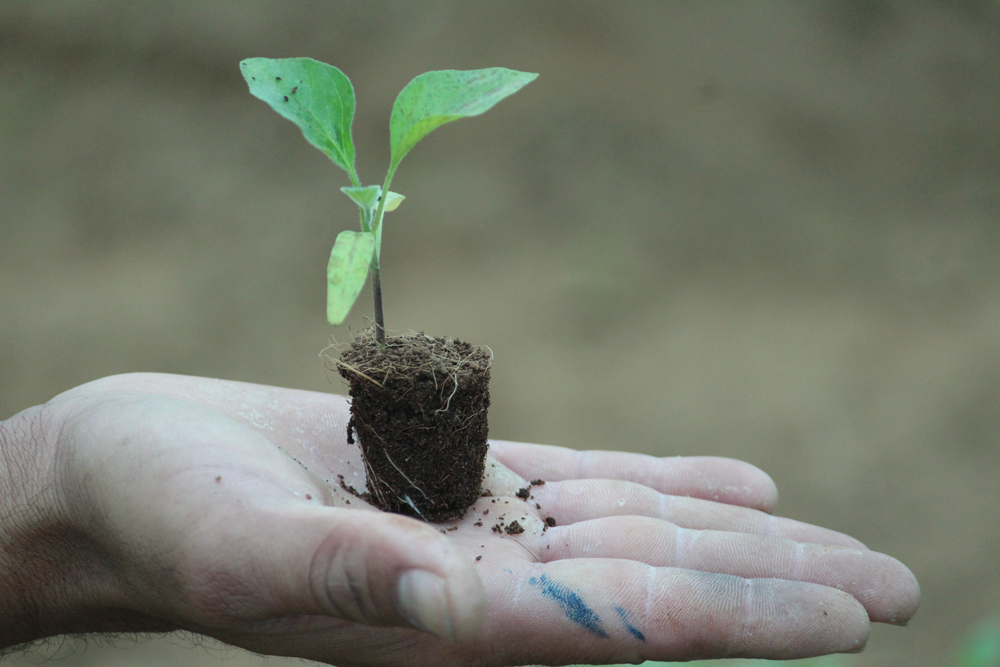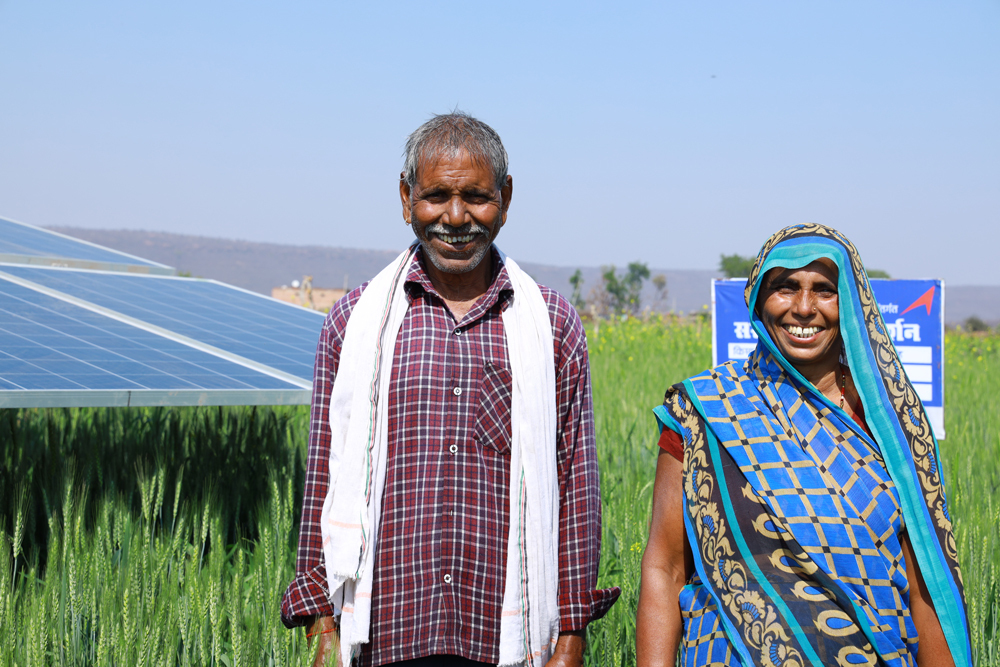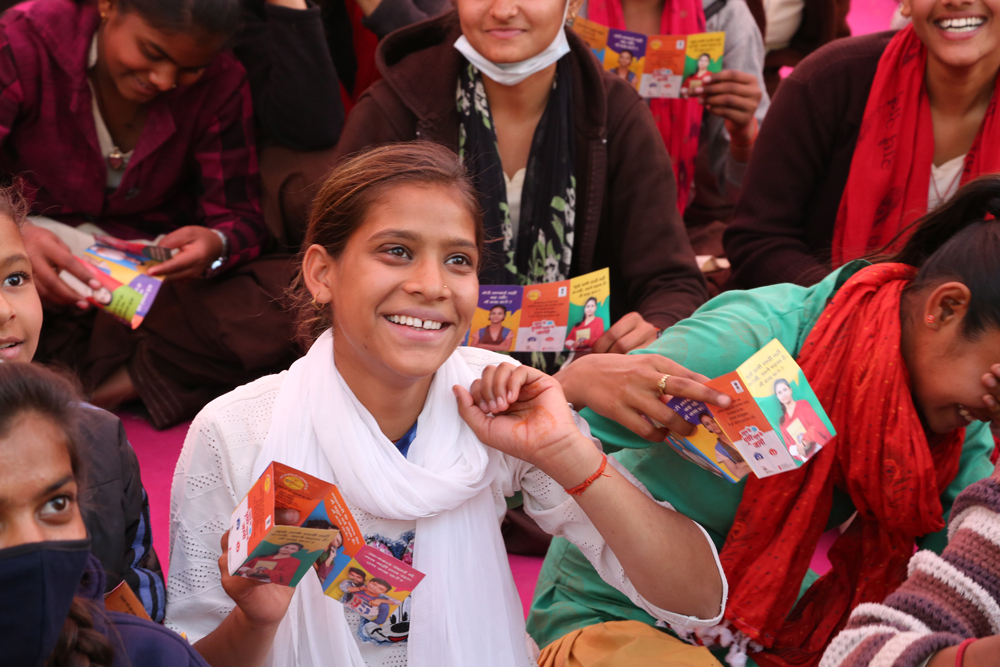Agriculture & allied sectors
Innovations in technology and processes that enhance productivity and the transition to environmentally sustainable and organic practices.
A start-up incubator exclusively for India’s underserved.
Born out of the legacy of our parent organisation-Manjari Foundation in building women’s institutions from the bottom-up, MaHSIE is the first innovation hub of its kind to be established in the aspirational district of Dholpur. Our aim is to create a vibrant ecosystem that nurtures ideas and innovations emerging from the grassroots and usher in a new wave of entrepreneurship in India’s untapped hinterland.

We are not in the business of selection. We build capacities and nurture ideas to maturity, allowing the market to determine viability.

We have built expertise in some sectors, yet we recognize that one size cannot fit all. Rather than sectors, we prioritize ideas that create impact.

We hand-hold entrepreneurs, offering tools, training, guidance, and resources to bring ideas to action.

We pioneer bottom-up developmental solutions for India’s untapped and underserved non-metros and rural areas.
A Tale of 'Two Indias'
“If I have the belief that I can do it, I shall surely acquire the capacity to do it even if I may not have it at the beginning.” - Mahatma Gandhi
The vast majority of social incubators and start-ups today are concentrated in major metropolitan cities. India needs more innovations focussing on the needs of the common man and the upliftment of weaker sections of society. Since independence, the government has been cognizant of this divide. The popular slogan “Jai Jawan Jai Kisan'' coined by our erstwhile prime minister Lal Bahadur Shastri more than 50 years ago, holds true even today and has been the guiding force behind our parent Manjari Foundation’s extensive work to empower small and marginal farmers towards self-sufficiency. Our experience working at the grassroots has taught us a valuable lesson - when people are mobilized into institutions, they hold the collective potential to bring lasting change to their communities.
“No doubt we have to have bigger projects, bigger industries, basic industries, but it is a matter of the highest importance that we look to the common man, the weakest element in the society.” Lal Bahadur Shastri
India needs a second wave of entrepreneurship to pave the way for bottom-up solutions that can address the unique developmental needs of underserved Bharat. Toward this end, MaSHIE will adopt a dual focus:
1 Contextual innovations for BOP needs - Rural India has unique challenges requiring innovative bottom-up solutions. Over the years, Manjari Foundation has laid a strong foundation across Rajasthan and Madhya Pradesh through its numerous interventions to build local capacities and improve the overall quality of rural life. As a next step, MaHSIE seeks to encourage and empower aspirants emerging from the grassroots to conceive and pursue innovations relevant to their own socio-economic backgrounds.
2 A finishing school for grassroots entrepreneurs - Unlike the mainstream, entrepreneurs emerging from less affluent backgrounds lack the same privilege or exposure as their urban counterparts. By virtue of being based in the aspirational Dholpur district, MaHSIE is strategically positioned to democratize entrepreneurship in the region and serve as a ‘finishing school’ for such aspirants, grooming them to compete in the market on an equal footing.
MaHSIE has accumulated a wealth of knowledge and expertise in three key sectors, owing to the work of its parent organization, Manjari Foundation across Rajasthan, Uttar Pradesh, Madhya Pradesh, and Uttarakhand.

Innovations in technology and processes that enhance productivity and the transition to environmentally sustainable and organic practices.

Climate-positive solutions to conserve and regenerate depleting natural resources including projects to conserve and improve access to clean water, solar and other renewable sources of energy etc.

Initiatives that expand access to learning, skill development, and livelihood opportunities for rural and underserved populations
Launched on the 152nd birth anniversary of Bapu, MaHSIE is guided by the Gandhian ideology of self-reliance rooted in the concepts of Swadeshi (of one's own country/community) and Sarvodaya (upliftment for all). By virtue of being based in the aspirational Dholpur district, MaHSIE is strategically positioned to democratize entrepreneurship in the region and serve as a ‘finishing school’ for start-ups from rural India, grooming them to compete in the market on an equal footing. An incubation platform focussed exclusively on underserved rural and semi-urban regions of India, where nearly 70% of the country’s population resides, MaHSIE is a step towards nurturing untapped potential and creating a league of change-makers geared towards revolutionizing development for the bottom of the pyramid.
A vibrant start-up ecosystem that nurtures innovations in underserved India.
MaHSIE is pioneering a new approach that promotes innovators from the grassroots; and champions bottom-up solutions to meet the unique challenges of India’s rural and underserved populations.
Providing entrepreneurs with what matters most

customized assistance for new innovations in R&D, product design, Minimum Viable Product (MVP) development, production and logistics, validation, prototyping and testing, risk analysis, and competition mapping. hands-on strategic and operational solutions for existing models to achieve scale and financial viability

One-to-one coaching and capacity-building support for 1st generation entrepreneurs by our industry-wide experts, theme-based panel discussions, sessions and workshops, business connections and networks, scrutiny by experts, collaboration opportunities and support in enhancing customer experience, building an online presence and market linkages

state-of-the-art software and hardware for new product development and quality testing including 3-D printing and fully automated ESDM labs inputs, technology, and training in best practices to boost productivity in agriculture and allied sectors

assistance in creating and refining pitch decks, DPRs and selecting the most appropriate modes of finance for seed and series funding linkages to donors, angel/VC investors, banks, NBFCs and financial institutions, govt. schemes.
Our Testimonials
'Manjari’ literally translates to “seed of Tulsi”, a sacred Indian plant. When women mobilise themselves to form institutions, they are empowered to sow their own ‘seeds of change’.
"Development of Corporate Citizenship (DoCC), the social internship program of SPJIMR has been collaborating with Manjari Foundation since 2015. This has been fruitful relationship for us. I want to emphasise the four following themes. First the internships give our students a different idea of leadership which also gives them a sense of requirements for the future and adds to the ethics of sociological content. The participants acquire a notion of innovation- both social and technical which gives them a systemic view of the society. Such an empirical location gives them both a sense of limits and possibilities of what they can do. Environmental consciousness and gender sensitivity constitute two critical parts of social responsibility as we define it today. The participants of the internship understand what these key concepts mean in everyday sense. Internship at Manjari adds to their imagination in this direction. We value this relationship."
"Our collaboration with Manjari has allowed us to better understand the approach of solidarity groups and concretely towards the empowerment of women in the commune of Logo.The participation of Indian PRCs has been beneficial because the women have appropriated easily by seeing that they are rural women Indian women who share their experiences with them. The Camide team was formed by the professionals of Manjari with enthusiasm and professionalism and is able to reproduce most of the activities. This period of collaboration opens up prospects for our two structures to replicate the model in Mali and Africa. We again thank Manjari for all the efforts made for Camide and particularly the Director Sanjay Kumar. We were able to reach more than 2,500 women and more than 180 million CFA francs of credit granted four test henhouses substantial support for the winter and market gardening campaign in terms of results thank you."
"Without larger vision and dedication of the team of MF and its leadership, both vertical and horizontal growth would have never been possible to pick up at this level in this short history of its evolution. Since I have been associated with the Sakhi project of MF funded by Hindustan Zinc for the last 2 years, the happiness and confidence seen in their faces of hundreds of women in the villages proves its vitality. I have also witnessed the UN-women funded second chance education project (SCE) being implemented in 3 districts under the guidance of PRADAN is a much worthy to reach out to those young women in the age group of 16-35 who have been deprived in their childhood with the education, skills and employment are now happily enrolled and trained to overcome these deprivations with much positive outcome. While writing all these statements, I recall each visit to the project area to witness the change processes that were taking place within those women who had never dreamed of being so empowered and self-reliant so soon in their lifetimes."
"Manjari Foundation is IPE Global’s implementation partner in Dholpur, Rajasthan under the Children’s Investment Fund Foundation (CIFF), UK supported Project Udaan that aims at reducing teenage pregnancies. They have been instrumental in successfully piloting interventions for improving the knowledge of adolescents around sexual and reproductive health (SRH) in Bari block of Dholpur. Their efforts in organizing a team to take up the issue of adolescent SRH and facilitating its implementation with great sensitivity across the block has not only been recognized by the district administration, but has also paved way for attempting a scale-up across the district. Their coordination with the community-level institutions, local government bodies and the target group has been noteworthy and exemplary. "